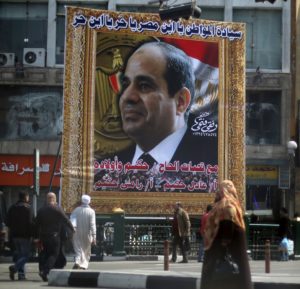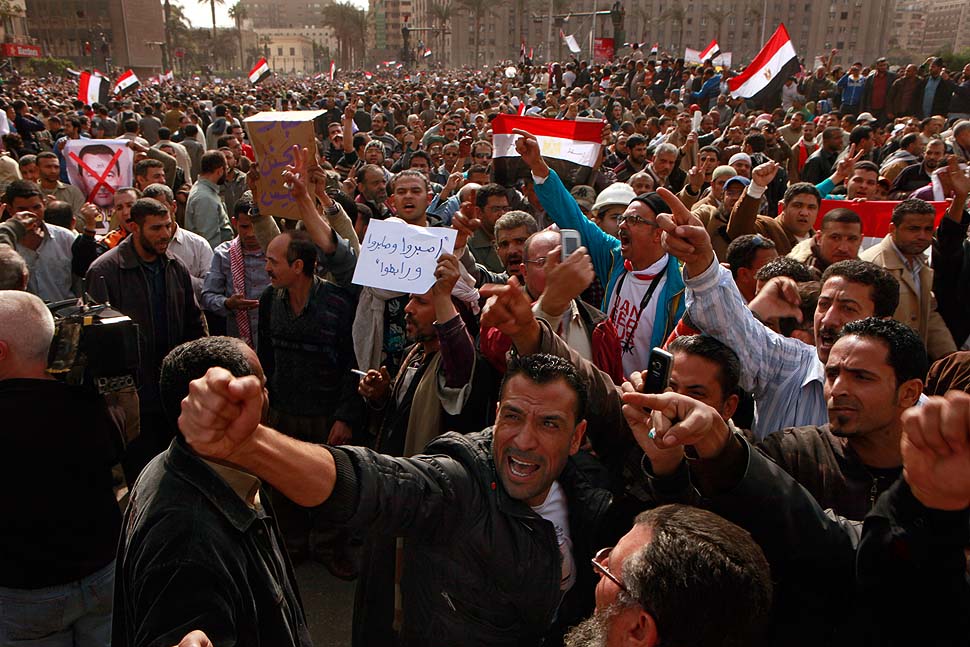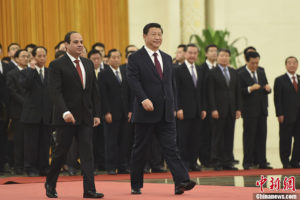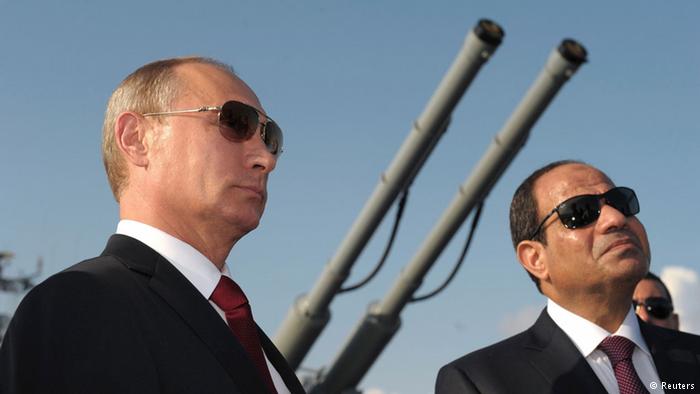 Egyptians go to the polls today for a presidential election that smacks of a coronation. After all, not only is voting compulsory, but President Abdel Fattah al-Sisi is effectively the only candidate.
Egyptians go to the polls today for a presidential election that smacks of a coronation. After all, not only is voting compulsory, but President Abdel Fattah al-Sisi is effectively the only candidate.
Frankly, the only uncertainty is whether he’s shameless enough to rig more than the 96.1 percent of the vote he rigged in 2014.
The lack of serious competition has drawn the fierce condemnation of critics who say Sisi has stifled dissent, but the President says he is not to blame. …
‘I swear to God, I wished there would have been more candidates for people to choose who they want. But they were not ready yet, there is no shame in this,’ Sisi said in a recent TV interview.
(CNN, March 25, 2018)
Only a godless dictator would broadcast such a big lie without fear of his people ridiculing him or of God rebuking him. This, alas, is what the Arab Spring has sprung.
The BBC telegraphed this unfolding farce a month ago (on February 24). That’s when Our World previewed this election under a headline that was as telling as it was succinct:
Crushing Dissent in Egypt
As it happens, though, I telegraphed this years ago. In fact, here is the foreboding I sounded when the Arab Spring was still in full bloom:
With all due respect to the protesters, the issue is not whether Mubarak will go, for he will. (The man is 82 and already looks half dead for Christ’s sake!) Rather, the issue is who will replace him. And it appears they have not given any thought whatsoever to this very critical question. …
The devil the Egyptians know might prove far preferable to the devil they don’t. Just ask the Iranians who got rid of the Mubarak-like Shah in 1979 only to end up with the Ayatollah Khomeini — whose Islamic revolution they’ve regretted (and have longed to overturn) ever since.
(“Army Pledges No Force Against Protesters,” The iPINIONS Journal, February 1, 2011)
Unfortunately, I’ve had too many occasions since then to say “I told you so.” I could easily cite another twenty-five commentaries, but here are just five to give you a sense of how I chronicled Egypt’s descent into a dictatorship that makes Mubarak’s look like a liberal democracy:
- “Protesters Return to Tahrir Square,” June 6, 2012
- “Egyptians Continue March Back to the Future,” December 20, 2013
- “Egypt’s Arab Spring Spawns Brutal Military Dictatorship,” March 25, 2014
- “Dismissal of Mubarak’s Charges Brings Indian Summer for Egypt’s Arab Spring,” December 1, 2014
- “Egypt Sentences Morsi to Death: Exposes Fecklessness of US Mideast Policy,” May 20, 2015

For a little more edification, here is what I wrote in the December 2014 commentary on events that vindicated my warnings about the confluence of euphoria and myopia among Egypt’s pro-democracy protesters:
These are the same anti-government protesters who took to this same square last year to celebrate Sisi’s ouster of Morsi, and who did the same four years ago to call for the ouster of Mubarak.
Even so, the irony seems completely lost on them that, despite all of their revolutionary protests, the dismissal of all charges against Mubarak means that Egypt has ended up right where the Arab Spring was sprung.
But, if they think they can repeat against Sisi the miracle in Tahrir Square that led to the ouster of Mubarak, I have two words of admonition for these protesters: Tiananmen Square.
 Of course, given the fallout from Tiananmen Square, China’s democratic protesters can be forgiven for thinking that their country is fated to be ruled by a Maoist dictator:
Of course, given the fallout from Tiananmen Square, China’s democratic protesters can be forgiven for thinking that their country is fated to be ruled by a Maoist dictator:
China’s largely ceremonial parliament on Sunday overwhelmingly endorsed a controversial change to the country’s constitution, paving the way for President Xi Jinping to stay in power indefinitely.
(CNN, March 12, 2018)
Likewise, given the fallout from Tahrir Square, Egypt’s democratic protesters can be forgiven for thinking that their country is fated to be ruled by … a latter-day Pharaoh. Hence the protester’s remorse as Egypt’s Arab Spring continues to sprout nothing but thorns.
Related commentaries:
Sisi’s Egypt…
Arab spring…
